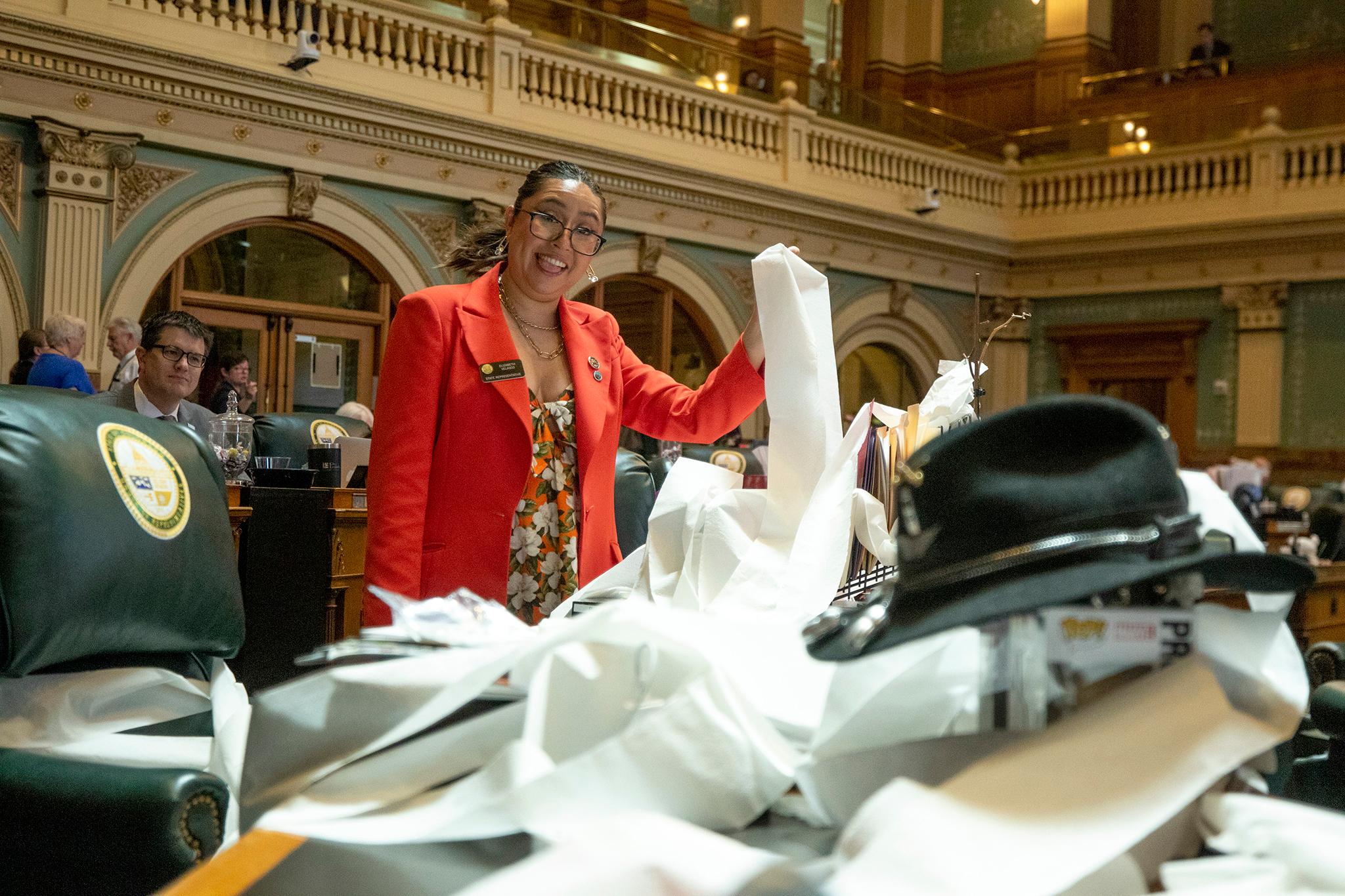
State lawmakers are in a race to midnight.
That’s when, by law, they must adjourn their regular session for the year. To wrap up their work before that deadline, legislators have been flying through hearings, debates and votes for days now, trying to get dozens of bills over the finish line.
“I have this little app on my phone. It's counting down the days, the hours, the minutes, the seconds,” said Sen. Janice Rich, a Republican, as the Senate settled in for even more debate Tuesday afternoon.
The docket in these final hours included final action on:
- Bills related to firearms, including a ballot initiative to put a new excise tax on gun and ammunition sales.
- A big set of tax bills, including property tax cuts and an income tax cut.
- A new public school finance formula.
- New regulations on artificial intelligence.
- Grants to assist new immigrants.
While Democrats hold a wide majority in both the House and Senate, one of the biggest bills of the session, to provide property tax relief for homeowners and businesses, has bipartisan support. After a last-minute introduction on Monday, it’s expected to pass today.
“You finally bring a big polarizing issue to rest with a bipartisanship solution, with the governor's office as well as with Colorado Counties Inc. and all these other groups that have such different interests. I think that's a big deal,” said Democratic Senate President Steve Fenberg.
Fenberg noted that while many bills each session have bipartisan sponsors or support, they’re usually less significant.
The final day of session is often a high-spirited time, as sleep-deprived lawmakers giddily contemplate a return to normal life. When the chambers break for last-minute conference committees and final negotiations, members fill the time with amateur musical performances, pranks and the annual dropping of a rubber band ball from the third-floor rotunda.

All told, Colorado lawmakers introduced 705 bills over their four months of work. For Republican Rep. Richard Holtorf, that was far too many.
“It's just not a good way to run the General Assembly period,” he said. “I call it rush to failure, rush to bad legislation because, arguably, when you do last-minute legislation, you always have to come back in the next year and do cleanup legislation to fix it.”
And while some big items still need final action, other Democratic priorities are being allowed to “die on the calendar,” either because there is not enough time left to pass them, or they don’t have the support to move forward so lawmakers don’t want to spend their limited time on a debate.
Among the bills that didn’t cross the finish line are a number of tax credits that lawmakers had proposed earlier in the session, everything from reimbursements for teachers who buy school supplies; to incentives for converting office buildings to residential; and a tax credit for veterinarians.
A controversial bill to reform RTD is also not moving forward, and the Senate rejected bills to allow greater medical malpractice damages and prohibit more felons from having guns, among others.
But the legislature also has been chewing through its backlog — which mostly consists of Democratic bills.
In the final three days Democrats passed a racial equity study bill to study the impacts of system racism in Colorado. Democrats also passed a bill that would require some cities to allow greater housing density near certain transit lines. And they’re sending to Gov. Jared Polis a major drilling-fees-for-transit bill that his office negotiated in a grand bargain between the industry and environmental interests.
Now, with just hours remaining, they’ll try to check the last remaining items off their to-do list.









